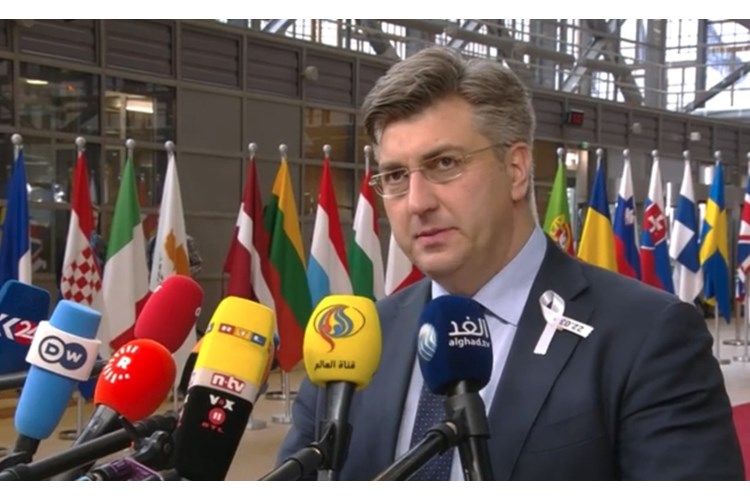


The Croatian government unanimously decided on Thursday to send the Istanbul Convention bill to Parliament for ratification. Immediately after the government meeting, Plenkovic travelled to Brussels for an EU summit.
Plenkovic reiterated that the Istanbul Convention was in accordance with the Croatian constitution and provisions governing human and fundamental rights.
"We thoroughly consulted the legal service of the Council of Europe. After I landed here in Brussels, I hear that some are calling it a worthless piece of paper. I am calling on the SDP (Social Democratic Party) chief, whose party did nothing to ratify this convention while it was in power and had a convincing majority in Parliament, to study the law on the ratification and execution of international treaties, to familiarise himself with the meaning of interpretive statements and examine some others laws as well, the basic treaties of the EU, numerous interpretive statements made by other member states, and to finally take political responsibility," Plenkovic said.
He was also asked to comment on a government-commissioned poll on citizens' views on the Istanbul Convention and say whether he was worried about the fact that about 40 percent of the electorate of his HDZ party did not support the Convention.
"This matter requires leadership, it requires an explanation and dialogue. I am confident that what I am doing is good for Croatian society and the state and for the direction I want us to be going. I will do all I can to explain to the members, sympathisers and voters of the HDZ why we have embarked on this process, what is not true and what I consider to be correct," Plenkovic said.
He added that he wanted the HDZ to take as united a front as possible. "We will see whether there will be colleagues who will possibly vote against. We will make sure that a large majority votes in favour."
Prime Minister Andrej Plenkovic on Thursday commented on President Kolinda Grabar-Kitarovic's invitation to Russia's President Vladimir Putin to visit Croatia, saying that questions about whether the invitation was appropriate should be directed at the president.
"I saw the news a little while ago. The president obviously spoke with president Putin following her visit to Moscow a few months ago. This was probably agreed then, as far as I am aware from our talks after she returned from that visit. The call was probably made on the occasion of his re-election," Plenkovic said.
Asked whether he had held consultations with Grabar-Kitarovic and whether he was aware that she was going to call Putin, Plenkovic answered, "we saw each other last night."
Asked whether the invitation for a visit was appropriate at this moment considering the recent attack with a nerve agent in England, Plenkovic said that that was something the president should be asked.
"That's something that you have to ask the president about. She has been developing dialogue with Russia's president for some time now. This seems to be something that is in the context of their dialogue of the past few months and has less to do with recent events," Plenkovic added.
The European Union is divided in its opinion whether to congratulate Vladimir Putin on his re-election. European Commission President Jean-Claude Juncker, German Chancellor Angela Merkel and French President Emmanuel Macron have congratulated Putin while other officials don't want to in light of the recent attack on a former Russian spy in England.
Asked whether an encounter between Donald Trump and Vladimir Putin could be held in Croatia, considering speculation that the meeting will be held on neutral territory, Plenkovic said: "Everything is possible. We hadn't thought about that yet. I saw President Donald Trump's statement after the telephone call a few days ago. We'll see, there's still time," Plenkovic said.
Text: Hina